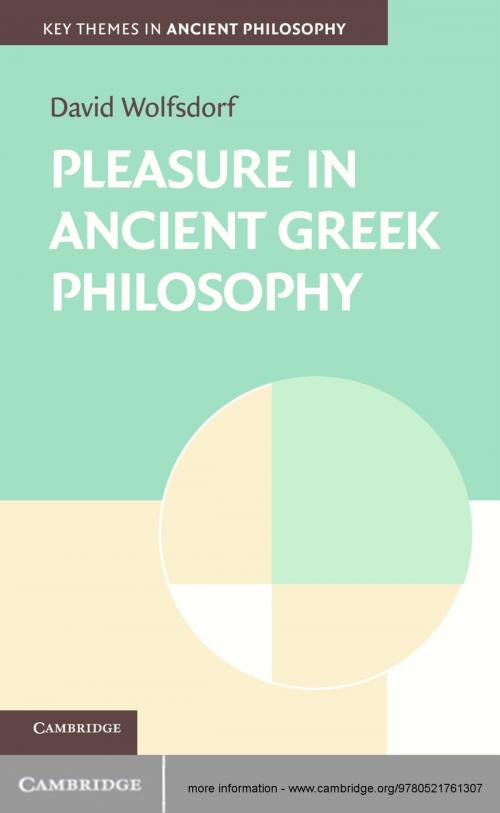Pleasure in Ancient Greek Philosophy
Nonfiction, Religion & Spirituality, Philosophy, Ancient, History| Author: | David Wolfsdorf | ISBN: | 9781139609715 |
| Publisher: | Cambridge University Press | Publication: | November 29, 2012 |
| Imprint: | Cambridge University Press | Language: | English |
| Author: | David Wolfsdorf |
| ISBN: | 9781139609715 |
| Publisher: | Cambridge University Press |
| Publication: | November 29, 2012 |
| Imprint: | Cambridge University Press |
| Language: | English |
The Key Themes in Ancient Philosophy series provides concise books, written by major scholars and accessible to non-specialists, on important themes in ancient philosophy that remain of philosophical interest today. In this volume Professor Wolfsdorf undertakes the first exploration of ancient Greek philosophical conceptions of pleasure in relation to contemporary conceptions. He provides broad coverage of the ancient material, from pre-Platonic to Old Stoic treatments; and, in the contemporary period, from World War II to the present. Examination of the nature of pleasure in ancient philosophy largely occurred within ethical contexts but in the contemporary period has, to a greater extent, been pursued within philosophy of mind and psychology. This divergence reflects the dominant philosophical preoccupations of the times. But Professor Wolfsdorf argues that the various treatments are complementary. Indeed, the Greeks' examinations of pleasure were incisive and their debates vigorous, and their results have enduring value for contemporary discussion.
The Key Themes in Ancient Philosophy series provides concise books, written by major scholars and accessible to non-specialists, on important themes in ancient philosophy that remain of philosophical interest today. In this volume Professor Wolfsdorf undertakes the first exploration of ancient Greek philosophical conceptions of pleasure in relation to contemporary conceptions. He provides broad coverage of the ancient material, from pre-Platonic to Old Stoic treatments; and, in the contemporary period, from World War II to the present. Examination of the nature of pleasure in ancient philosophy largely occurred within ethical contexts but in the contemporary period has, to a greater extent, been pursued within philosophy of mind and psychology. This divergence reflects the dominant philosophical preoccupations of the times. But Professor Wolfsdorf argues that the various treatments are complementary. Indeed, the Greeks' examinations of pleasure were incisive and their debates vigorous, and their results have enduring value for contemporary discussion.















